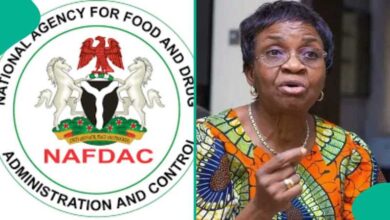Why Over 50m Nigerians are Mentally ill, by Psychiatrists

By guardian.ng
• About 75% of those who need mental healthcare lack access
• Nigeria has only 300 psychiatrists to treat over 200m people
• Africa has one psychiatrist for every 500,000 inhabitants, 100 times less than the WHO recommendation
• Stigmatisation major challenge to accessing healthcare says Adesokun
• Jehovah’s Witness marks global mental health day
• WHO rolls out measures to reverse suicide, the mental health crisis in Africa
Today is World Mental Health Day (WMHD) and psychiatrists have raised the alarm that one in four Nigerians, that is over 50 million Nigerians, are suffering from one mental disorder or the other.
Also, they said about 75 per cent of those who need mental health care do not have access to it, as Nigeria has only 300 psychiatrists to treat about 200 million people, adding that Africa has one psychiatrist for every 500,000 inhabitants, which is 100 times less than the World Health Organisation’s (WHO) recommendation.
WMHD is marked every year on October 10 to raise awareness about mental health around the world and mobilise efforts to support those experiencing mental health issues. Every year since 2013, WHO has organised a global campaign for WMHD. This year’s theme as announced by the World Federation for Mental Health (WFMH) is ‘Make mental health for all a global priority.’
According to psychiatrists, around 11 people per 100,000 die yearly by suicide in Africa, higher than the global average of nine per 100,000 people. They, however, made recommendations on how to reverse suicide and mental health crisis in Africa.
Medical Director, of Federal Neuropsychiatric Hospital Yaba, Lagos State, Dr. Olugbenga A. Owoeye, told The Guardian that studies have shown that one out of every four persons has one diagnosable mental illness or the other, which is about 25 per cent of the population.
“So, you can see how common this condition is, mental illness is not only synonymous with those walking naked under the bridge; there are many people who dress very well and go to the office occasionally, but who are suffering from mental illness,” Owoeye said.
On the common types of mental illness in Nigeria, Owoeye said: “They range from minor conditions to major ones. Minor conditions like stress-related disorders or acute stress reactions like generalised anxiety, phobias of various types constitute the minor conditions. But when it is becoming major like in the case of effective disorders, major depression or in form schizophrenia, it needs urgent attention.
“There are many types of schizophrenia, there is what we call a split mind; here, the mind is shattered and the person loses contact with reality. The person may also be hearing strange voices, seeing strange things, and having odd behaviours. Substance abuse-related disorder is also part of the major condition and this may be comorbid or coexisting with some other major mental illness. Other minor conditions include eating disorders like anorexia nervosa and bulimia nervosa,” he said.
Schizophrenia is a chronic, severe mental disorder that affects the way a person thinks, acts, expresses emotions, perceives reality, and relates to others. Anorexia nervosa and bulimia nervosa are different types of eating disorders. Eating disorders are psychological conditions that involve complicated relationships with body image and food. People with these conditions develop unhealthy eating habits and experience mental and physical symptoms.
On the challenges facing mental healthcare in Nigeria, the psychiatrist said about 75 per cent of those who need mental health care do not have access to it, while for those who do, what they get is not qualitative mental health services.
“The only reason why they are unable to access qualitative mental healthcare services is inadequate manpower. In Nigeria as of today, we have about 300 psychiatrics to treat about 200 million people. The number of clinical psychologists we have is even lower. There is a scarcity of psychiatric nurses, social workers and occupational therapists and despite the scarcity, these groups of people are still travelling out of the country in search of greener pastures.”
Owoeye said another challenge is inadequate infrastructure. He noted that out of 36 states and the Federal Capital Territory (FCT), the country has only nine federally-owned psychiatric hospitals, with six of them located in the six geo-political zones. The psychiatrist said there is still need for more to cover all the states considering how common these conditions are.
President, Association of Psychiatrists in Nigeria (APN), Dr. Taiwo Obindo, has said more than 60 million Nigerians are suffering from mental illnesses. Obindo, who is also the chairman, Faculty of Psychiatry, West African College of Physicians, said: “Mental healthcare is in a sorry state, given that we have more than 60 million Nigerians suffering from various mental illnesses and the fact that only about 10 per cent of them are able to access appropriate care.
“We are left with more than 90 per cent who are unable to access care and this group is called the treatment gap for mental illnesses. Knowing that 60 per cent of Nigerians live in the rural areas, they do not have access to appropriate care and have to travel long distances to access facilities.’’
He said the gap was a result of various factors like the knowledge gap in which people do not have appropriate information about the causes and treatment of mental illnesses.
Obindo said some factors hindering the management of mental illness in Nigeria include myths and traditional beliefs, inadequate mental health facilities and professionals. According to him, the few available facilities are located in city centres.
On how to improve mental healthcare in Nigeria, a consultant psychiatrist and former Chief Medical Director, of Lagos State University Teaching Hospital (LASUTH), Dr. Femi Olugbile, said: “If Primary Health Care (PHC) facilities are activated to recognise and treat basic mental health problems, and if they are interconnected through electronic medical records/Information Communication Technology (ICT), specialists based in specialist centres could supervise these PHCs in regional clusters and facilitate back and forth referral of difficult cases.
This is the appropriate pragmatic response to the target, rather than perpetual hand-wringing about the shortage of specialists. Carefully managed task shifting is the way forward, though it should not stop the acquisition of more specialists and facilities. We need to think out of the box.”
On legislation or reform on mental health in Nigeria, Olugbile said: “On February 19, 2020, the Senate held a public hearing for the Mental Health and Substance Abuse Bill. It is believed that if passed, the bill would allow for much-needed budgetary allocations for mental health facilities and providers. The passage of the bill will help in every area and open up new possibilities.”
The psychiatrist joined the call for the integration of mental health training, responses and psycho-education within primary care settings, as contained in the National Mental Health Service Delivery Policy of Nigeria. He, however, said there have been challenges with regard to mental health services, including that of policy development and legislation, financing, research, training and integration of mental healthcare into primary healthcare.
According to Dr Fisayo Adesokun, consultant psychiatrist at the University of Port Harcourt, a major challenge in accessing mental healthcare is stigmatisation. He said mental health and physical health are complementary and should not be seen as a taboo subject.
In the same vein, Oye Gureje, a Professor of Psychiatry at the University of Ibadan said that caregivers, formal and informal, provide the most intensive care, and they are usually taxed physically, emotionally and financially. “These ones need to be cared for, so as to avoid creating more mental health problems,” he said.
Meanwhile, Jehovah’s Witness (JW), a Christian denomination has revealed its plan to make mental health a global priority. This was revealed in a statement by JW’s spokesman in Nigeria, Olusegun Eroyemi, to mark the 2022 WMHD.
Eroyemi said: “Jehovah’s Witnesses have made the issue of mental health a global priority. In addition to their Bible-based global message of hope, their official website, jw.org, is filled with publications on how to cope with mental health and how family members and friends can provide support. The website is translated into some 1,060 languages.
“There is a lack of awareness about mental health, and people easily attribute the condition to various factors that only worsen the plight of victims. Mental health can be managed, and caregivers need care,” Eroyemi said.
He noted that as life becomes more difficult to cope with, the effect on mental health becomes more observable. He explained that Jehovah’s Witnesses will continue to share the Bible’s comforting message that gives hope to everyone. All are invited to visit www.jw.org and use the resources available to cope with mental health and provide the needed care for affected persons.
YESTERDAY, WHO made recommendations on how to reverse suicide and mental health crisis in Africa. The body also inaugurated a campaign to raise awareness and spur action for suicide prevention in Africa, which has the world’s highest rates of death by suicide.
According to WHO, around 11 people per 100,000 every year die by suicide in the African region, higher than the global average of nine per 100,000 people. It said this is due in part to insufficient action to address and prevent the risk factors, including mental health conditions, which currently affect 116 million people, up from 53 million in 1990.
WHO, in a statement, said the social media campaign aims to reach 10 million people across the region to raise public awareness and galvanise the support of governments and policymakers to increase focus and funding for mental health programming, including suicide prevention efforts.
According to WHO, such efforts include equipping health workers to better support those dealing with suicidal thoughts, educating people who may experience these thoughts on where to go for help as well as sensitising the public on how to identify and help those in need and to help tackle the stigma associated with suicide, epilepsy, mental health conditions, alcohol and drug abuse.
The African region is home to six of the 10 countries with the highest suicide rates worldwide. The common means of suicide in the region are hanging and pesticide self-poisoning and to a lesser extent drowning, use of a firearm, jumping from a height or medication overdose. Studies show that in Africa, for each completed suicide, there are an estimated 20 attempted ones.
WHO Regional Director for Africa, Dr Matshidiso Moeti, said: “Suicide is a major public health problem and every death by suicide is a tragedy. Unfortunately, suicide prevention is rarely a priority in national health programmes.
“Significant investment must be made to tackle Africa’s growing burden of chronic diseases and non-infectious conditions such as mental disorders that can contribute to suicide.”
WHO added that, in Africa, underinvestment by governments is the greatest challenge to adequate mental health service provision. It noted: “On average, governments allocate less than 50 U.S. cents per capita to mental health. Although it is an improvement from 10 U.S. cents in 2017, it is still well below the recommended U.S.$ 2 per capita for low-income countries. Additionally, mental healthcare is generally not included in national health insurance schemes.
“Due to the low investment in mental health services, the African region has one psychiatrist for every 500 000 inhabitants, which is 100 times less than the WHO recommendation. Additionally, mental health workers are mostly in urban areas, with primary and community health facilities having very few if any.”
Source: guardian.ng




